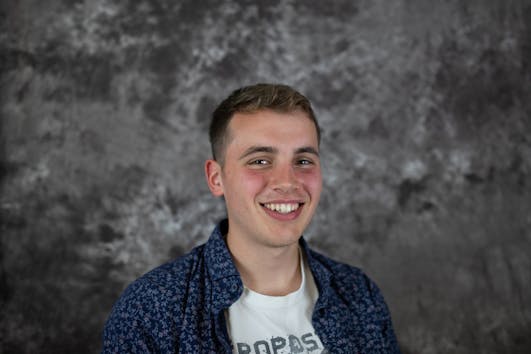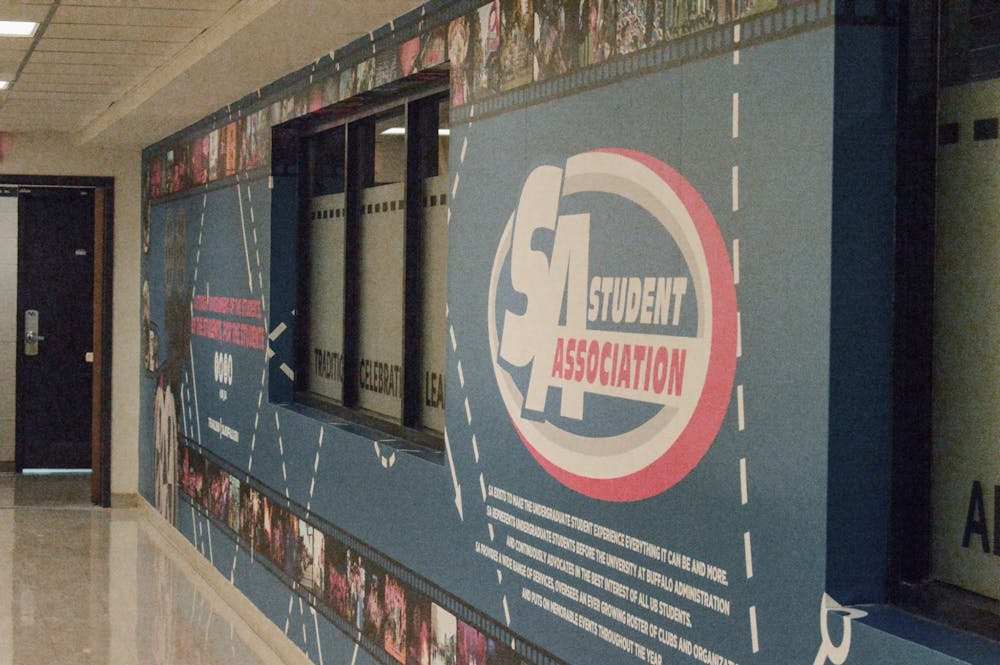The Student Association will focus its advocacy efforts almost exclusively on student mental health, its e-board said during an interview with The Spectrum Monday.
“Bringing campus back to normal is a huge stress on a lot of students, so… mental health is something that we definitely want to put a lot of emphasis on,” SA president Nick Singh said.
The e-board says its advocacy plans include publicizing and assessing the effectiveness of existing resources, meeting with students, working with administrators and developing “new avenues” for addressing on-campus mental health.
“Firstly, we need to make sure that our students... know [mental health resources] are available, and how to get them,” Singh said. “But two, how do we create new avenues [for mental health]? Yes, we have some existing stuff, but how do we create new stuff?”
The e-board says its members and other SA staff have met with administrators like Vice President for Student Life Brian Hamluk about “eight to 10 times” to discuss Counseling Services and Student Health and Wellness and has worked to expand its own programs such as Blue Table, the Student Union’s partnership with SA’s food pantry for students.
The SA has tried to form relationships with administrators because they view their cooperation as crucial to improving on-campus mental health, according to SA treasurer Austin Wolfgang.
“The school really needs to make sure that they are giving the students the opportunity to relieve stress and take a break from everything we do here,” Wolfgang said.
The SA’s conversations with administrators have been discussion-based so far, but Singh expects that to change once the SA finishes its “complicated” research into student mental health.
“When we have a comprehensive report as to where we are [as a student body], then I’ll take it up to the administration [and tell them,] ‘OK, this is what’s happening on the ground, this is what we provide and this is what we want to do with it,’” Singh said.
The SA is also “looking into” new mental health programs and resources, Singh said.
“We have a whole department tirelessly working towards that,” Singh said.
The proposals for those programs, however, may not be ready anytime soon.
“[Mental health] is an extremely high priority for us, I can tell you that 100%,” SA chief of staff Will Eaton said. “However, given the changing circumstances with COVID-19, along with the difficulty of collaborating with different organizations on and off campus, we don’t have a definitive timeline [on developing new resources].”
The SA has been collecting student concerns through its social media accounts, emails and the advocacy request form on its website.
“I have had students who reached out to me directly [with advocacy concerns], and I directed them accordingly or met with them accordingly,” Singh said.
Advocacy-related responsibilities are split among several SA bodies, including the e-board and Senate, but lie mainly with the Student Affairs Department, as outlined in Section V of the SA bylaws.
Josephina Nimarko and Cole Fredericks, the SA student affairs director and assistant director of health and wellness, have spent the past months meeting with university officials, starting partnerships and planning events like therapy dog walks, the e-board says.
“They’ve all been putting in hours since the beginning,” Eaton said. “They’ve been reaching out to people on campus, trying to get the pulse of what students need, and we’re trying to get on top of that as best we can.”
The SA’s stated goals follow long-standing concerns about Counseling Services and mental health on campus.
This is not the first time the SA has advocated for mental health concerns. Wolfgang, then the SA Assembly Speaker, spearheaded a campaign to add mental health days to the spring 2021 academic calendar. The bid ultimately ended when the Faculty Senate Executive Committee declined to add days off due to logistical constraints, but agreed to encourage faculty to make “adjustments that may reduce stress.” The R.E.A.L. Party ran unopposed and won the 2018-19 e-board elections on a platform including mental health. The R.I.S.E. Party ran in the 2020-21 e-board elections on a platform including mental health but ultimately lost to the HERstory Party.
Grant Ashley is a senior news/features editor and can be reached at grant.ashley@ubspectrum.com

Grant Ashley is the editor in chief of The Spectrum. He's also reported for NPR, WBFO, WIVB and The Buffalo News. He enjoys taking long bike rides, baking with his parents’ ingredients and recreating Bob Ross paintings in crayon. He can be found on the platform formerly known as Twitter at @Grantrashley.





